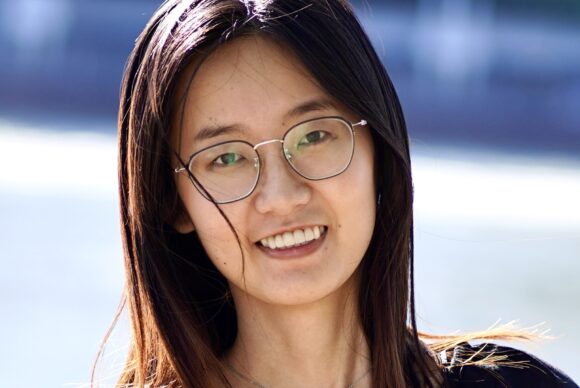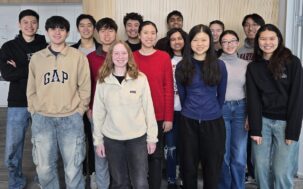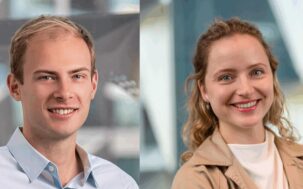Computer Scientist Qianqian Wang, an Expert in Computer Vision, to Join Harvard’s Kempner Institute and SEAS
New faculty researcher will bring expertise in teaching computers to see and interpret our 4D world

As a Kempner Institute Investigator, Qianqian Wang will explore the future of human vision: how machines can learn to see, understand, and interact with the world like humans do.
CAMBRIDGE, MA —The Kempner Institute announced today the appointment of Qianqian Wang, who will join Harvard as Kempner Institute Investigator and Assistant Professor of Computer Science at the John A. Paulson School of Engineering and Applied Sciences (SEAS).
At Harvard, Wang will explore the future of human vision: how machines can learn to see, understand, and interact with the world like humans do. “Dr. Wang’s research is at the forefront of enabling machines to perceive the world as we do—not as a static image, but as a dynamic 4D environment of space and time,” said Sham Kakade, Kempner Institute co-director and Rampell Family Professor of Computer Science and Professor of Statistics at SEAS. “Her pioneering work is fundamental for building the next generation of intelligent systems that can learn, navigate, and interact safely in our constantly changing world.”
“Qianqian Wang’s research has led to major advances in computer vision, specifically in the central challenge of reconstructing our three-dimensional world from the two-dimensional images we get from cameras—and from our eyes,” said Stuart Shieber, Area Chair for Computer Science and James O. Welch, Jr. and Virginia B. Welch Professor of Computer Science at SEAS. “We are fortunate to have Qianqian join our AI and machine learning initiatives in the computer science program and we look forward to her impactful contributions to our teaching and research efforts in computer vision, graphics, and artificial intelligence.”
Wang will begin her appointment at Harvard in the fall of 2026.
Research at the frontiers of computer vision
At Harvard, Wang will investigate a variety of topics at the forefront of computer vision, including long-form video understanding, visual reasoning, spatial and temporal memory, 3D scene perception, and active visual perception. (Read more about Wang’s research on her website.)
Building models that push the boundaries of visual intelligence “means asking big questions about how we perceive and reason about the physical world, and how those processes can be realized in intelligent systems,” says Wang. “Tackling these challenges requires not only innovation in AI but also deep insights into how the human brain works.”
Wang is currently a postdoctoral researcher at the Department of Electrical Engineering and Computer Sciences at the University of California, Berkeley, where she works with Angjoo Kanazawa and Alexei A. Efros. She completed her Ph.D. in Computer Science at Cornell University under advisors Noah Snavely and Bharath Hariharan. Wang received her bachelor’s degree from Zhejiang University, working with Xiaowei Zhou.
About the Kempner Institute
The Kempner Institute seeks to understand the basis of intelligence in natural and artificial systems by recruiting and training the next generation of researchers to study intelligence from biological, cognitive, engineering, and computational perspectives. Its guiding principle is that natural and artificial forms of intelligence share important characteristics. Future innovations in artificial intelligence (AI) will take inspiration from the principles that our brains use for fast, flexible natural reasoning. In parallel, theories developed for AI will enhance our understanding of how our brains compute and reason. Join the Kempner mailing list to learn more, and to receive updates and news.
PRESS CONTACT:
Deborah Apsel Lang | (617) 495-7993
kempnercommunications@harvard.edu






